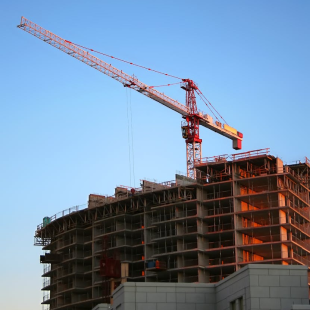Property law governs the rights, responsibilities, and interests associated with real property. It encompasses a wide range of legal matters, including property ownership, land use regulations, property and contractual disputes, leases, easements, zoning laws, and more. Our expert advice helps ensure that both individuals and businesses comply with all relevant legal requirements, avoid legal disputes and we will ensure that your interests are protected throughout the entire transaction.
In the liquor licence industry, property transactions are common when selling, purchasing or leasing licensed premises for bars, restaurants, pubs, or other establishments which all have specific considerations. We have substantial expertise in this area and can assist with all types of property transactions – from residential conveyancing to commercial premises including hotels, restaurants, service stations, supermarkets, convenience shops, newsagents, childcare centres – and all things in between.
Property Transactions and Conveyancing
Conveyancing is the legal process of transferring property ownership from one party to another. This process requires experienced oversight and must be diligently managed to avoid legal disputes and repercussions. The conveyancing process encompasses various tasks such as title searches, due diligence, drafting and reviewing contracts, handling financial aspects like mortgage arrangements, and managing the overall legal aspects of property transactions.
Cooling off periods often do not apply, therefore, once you enter into a binding contract to buy or sell property you must be aware that there are strict and enforceable deadlines and obligations that must be met under the contract. It is important to read all the information provided and carry out any additional due diligence to ensure your rights are safeguarded before entering into a binding contract. If you fail to gain a necessary finance approval, give a required notice, or sign an essential document, you may find yourself in default as either a buyer or seller, and the financial and legal consequences can be significant.
If you are buying, the principle of caveat emptor (buyer beware) generally applies, so it is important that you seek advice and undertake your own due diligence prior to exchanging contracts or bidding at auction. Vendors have specific disclosure obligations when selling property and require a written contract for sale prepared with certain disclosure material attached including statutory searches before a residential property can be advertised in New South Wales.
We have acted for vendors and purchasers of real property across vast industries including childcare, service stations, convenience stores, newsagents and hospitality. Should your commercial transaction involve the acquisition or sale of real property, we have the expertise to assist you with all your needs.
Property Development and Subdivision
Property law expertise is essential in navigating the legal complexities of development approvals, permits, and compliance with local regulations. In some cases, the liquor licence industry may involve property development or subdivision projects. This could include converting existing properties into bars or restaurants or developing new establishments in specific areas. We have over thirty years of experience supporting clients across New South Wales with acquiring, managing, and transferring their properties and businesses, and defending and protecting their property rights.
Our firm regularly acts in these types of disputes even when they escalate to Court or Tribunal proceedings. These include proceedings involving:
- claims for defective and incomplete work in breach of the statutory warranties contained in s. 18B of the Home Building Act 1989 (NSW);
- claims brought by Owners Corporations against builders and developers in respect of defective work in strata buildings;
- claims for breach of the duty of care imposed by s. 37 of the Design Building Practitioners Act 2020 (NSW) with respect to defects;
- adjudications under the Building and Construction Industry Security of Payment Act 1999 (NSW) which is an interim dispute resolution scheme introduced by the Government to a2empt to address cash flow issues for subcontractors and builders.
Lease Agreements
Entering a commercial lease is a significant financial investment for both the landlord and tenant. The lease agreement, which outlines the rights and obligations of both parties, should be carefully negotiated, prepared, and reviewed by an experienced lawyer as the parties are bound to it for the term of the lease. Importantly, there are no standard terms for a commercial lease, and they can vary from industry to industry or business type. A commercial hotel lease should include specific terms related to the nature of the operation, operating hours, ownership of the liquor licence and gaming machines and compliance with licensing conditions imposed by regulatory authorities. Therefore, it is pivotal to have a trustworthy commercial lawyer review your lease before executing the lease document. Many leasing disputes arise because the lease agreement is ambiguous or does not have sufficient provisions to deal with the many contingencies that may arise during the term of the lease. In other cases, the parties simply do not properly understand their rights and responsibilities under the lease.
Involving an experienced lawyer in your proposed leasing arrangements and having a well-drafted lease in place ensures that both parties understand their obligations from the commencement of their relationship which minimises costly disputes down the track.
Our firm has substantial experience in drafting commercial leases and therefore understand the necessity of explaining key provisions, flagging potential issues and risks, and addressing a wide range of contingencies to protect your interests, whether as a landlord or tenant. We regularly help clients with negotiating lease renewals, assigning (transferring) leases to new tenants, or seeking approval for the operation of certain types of businesses on leased premises.
We will also assist you in the interpretation of ambiguous provisions and existing contentious leases. In the case of conflicts, mediation and alternative dispute resolution methods can be employed to resolve issues without resorting to costly and time-consuming litigation.
Retail Leases
A NSW retail lease, also known as a retail shop lease, is a legally binding agreement between a landlord (lessor) and a tenant (lessee) for the rental of a retail premises in the state of New South Wales. This lease arrangement is primarily governed by the Retail Leases Act 1994 (NSW), which outlines specific rights and obligations for both parties involved.
Under this Act, a retail lease generally pertains to a lease for premises that are used, or intended to be used, for the carrying out of a retail business. A retail business includes activities such as selling goods or services to the public. It is important to note that certain types of premises and businesses may be excluded from the application of the Act.
Protections to the tenant under the Act include:
- Disclosure Requirements: The landlord is required to provide the tenant with certain information about the premises and the lease before the lease is entered into. This information includes details about the rent, personal guarantors, outgoings, lease term, and any special conditions.
- Minimum Lease Term: The Act specifies a minimum term for retail leases, usually five years. However, there are provisions that allow for shorter terms in certain circumstances.
- Cooling-off Period: After the lease is signed, the tenant has a short period during which they can terminate the lease without penalty. This is known as the “cooling-off” period.
- Fair Market Rent Review: If the lease provides for rent reviews during its term, the Act generally requires that these reviews be based on the current market rent.
- Maintenance and Repairs: The landlord is typically responsible for maintaining the structural aspects of the premises, while the tenant is responsible for maintaining the interior fixtures and fittings.
- Dispute Resolution: The Act provides mechanisms for resolving disputes between landlords and tenants, including through mediation and, if necessary, through the NSW Civil and Administrative Tribunal (NCAT).
It is important for both landlords and tenants to understand their rights and obligations under the Retail Leases Act 1994 (NSW) when entering into a retail lease agreement. Seeking legal advice before entering into such a lease is essential to ascertain that you are compliant with the law and to protect your own interests.
Zoning, Planning and Environmental Regulations
Understanding property regulations, development approvals, local planning and zoning laws, and licensing requirements is imperative for businesses in any industry to operate legally and responsibly. This is particularly relevant to those operating in the retail, service station and liquor & hospitality industry.
The development approval process in New South Wales is governed by the Environmental Planning and Assessment Act 1979 (EP&A Act) and its associated regulations including local environmental and development control plans.
Understanding what development approvals are required or in place before operating your business or purchasing a new property is fundamental. As development approvals or consents restrict and govern how a business can operate by imposing conditions on a property’s trading hours, noise restrictions and what development activities a person or business can undertake. The purpose of this development application process is to ensure that development activities align with the planning objectives and regulatory requirements of the NSW and local government areas. Generally, the Development Application process is as follows:
Pre-application Stage
Before formally submitting a development application, it is advisable to engage in pre-application discussions with the local council or relevant authorities. This stage allows for initial feedback and guidance on the proposed business development.
Development Application Submission
To initiate the development approval process, you are required to submit a formal Development Application (DA) to the local council or the relevant consent authority through NSW planning. The DA subject to the type of development, should include detailed plans, documents, and information about the proposed business development, its impact on the environment, and compliance with relevant zoning regulations.
Public Notification and Consultation
Depending on the scale and nature of the proposed development, the local Council may require public notification or consultation. This involves the relevant Council notifying neighbouring properties and allowing interested parties to provide feedback or raise objections to the proposed development.
Council Assessment and Review
The Council will assess the DA against relevant planning controls, including the Local Environmental Plan (LEP), State Environmental Planning Policies (SEPPs), and Development Control Plans (DCPs). The assessment will consider factors such as land use compatibility, environmental impacts, traffic management, community benefit and input from government agencies or other relevant authorities. Based on the councils’ assessment, a determination will be made of whether to approve, modify, or refuse the development application.
Appeals
If the development application is refused or approved with conditions that you find unfavourable, you have the right to appeal the decision to the Land and Environment Court of New South Wales. Please note that time limits apply. The Court will review the decision and may uphold, modify, or overturn it based on the evidence presented.
Construction Certificate
If your development application is approved, you will need to obtain a Construction Certificate before commencing construction. This certificate ensures that your proposed development complies with building standards and regulations.
Occupation Certificate
Once construction is completed and subject to the type of DA, an Occupation Certificate must be obtained from the relevant local council or certifying authority in NSW i.e. private certifier. The occupation certificate certifies the building or development is safe and suitable for occupation and use and that the construction or development works has been carried out in accordance with the DA.
Due to the complicated planning layers that an individual or a business must traverse, it is pivotal that you undertake due diligence on any property before exchanging contracts or entering into a lease, as you may unwittingly be exposed to restrictive development conditions or be required to go through the above DA process to operate your business. We are experienced in undertaking comprehensive due diligence on both residential and commercial properties and we will advise you what development approval is required to enable you to operate your business.
If you need assistance, contact one of our lawyers at [email protected] or call 02 9221 1088 for expert legal advice.
Our Services

Commercial &
Business Law
Commercial and business law governs the rights, relationships, and transactions of businesses and commercial entities

Liquor License &
Gaming Law
Liquor licensing and gaming laws in New South Wales govern the regulation and control of the sale and consumption of alcohol and the operation of gaming machines.

Dispute Resolution &
Litigation
Going to court is not the only way to resolve a legal matter – there are several substitutes for litigation..

Building and Construction
Our firm provides clients with advice on building and construction contracts and disputes. For contracts, we review and providing advice including on scope and risk allocation…

Wills &
Estates
Making plans to provide for your family after you pass away and to manage your affairs as you age or if you are incapacitated, is a sensible way to protect your assets and loved ones.


